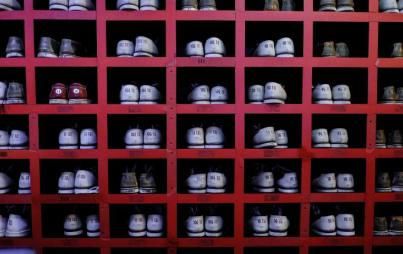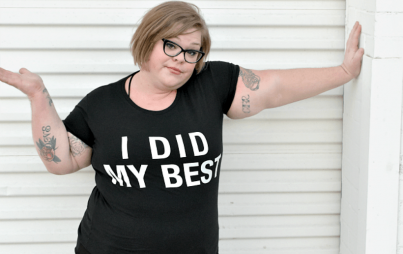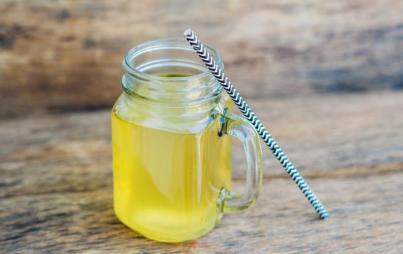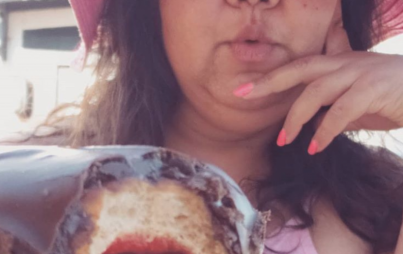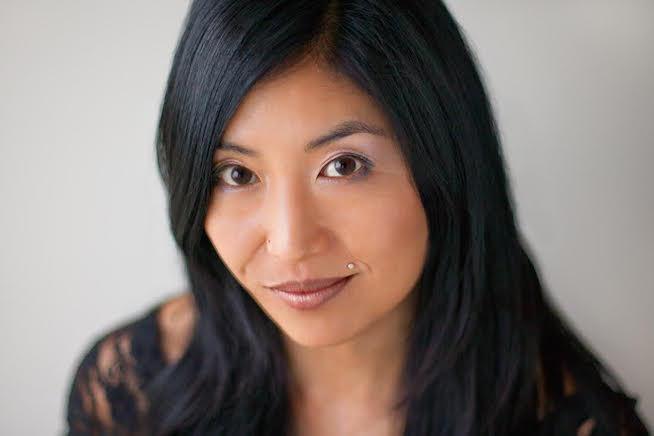
If you’re looking for a health and wellness guru, look no further than Ani Phyo.
Ani grew up in upstate New York where her father and her surroundings imparted a raw food lifestyle. She eventually moved to Los Angeles — by way of Portland — where she continues to enhance her approach to health and wellness through a slew of channels, including hosting her online cooking series called Ani’s Raw Food Kitchen Show, writing books like Ani’s Raw Food Essentials, Ani’s Raw Food Desserts, and Ani’s Raw Food Kitchen, all while offering up tons of info on raw food and wellness on her website.
These days, Ani is focusing on her Raw Food Certification Courses and incorporating business consultation with her clients.
“I want to help people achieve their own dreams,” says Ani on her passion for encouraging people to pursue their goals of becoming natural product entrepreneurs.
We caught up with Ani to chat about what keeps her motivated, the biggest misconception about eating raw, and Malala.
What has been your inspiration for becoming a raw foods chef?
It was more about sharing food. I was just making food to feed myself, but it’s never fun to eat your own food alone. So I started having dinner parties on the weekend, and that’s how it kind of started. And then the dinner parties grew. From 15 people to 20 people to 50 people to 100 people. They just kept growing very rapidly. So, there was definitely a need for it in the community. It’s just more fun to eat with people and share with people, so that’s the inspiration behind it.
You lead such a healthy lifestyle. Have you always been health-conscious?
Not always. I was raised that way. I grew up in a family where my father was terminally ill, so we ate very healthy and raw and from our organic garden. In high school, I would sneak off and get ice cream sundaes with my friends before track practice. And when I got to college, for the first time, I could eat sugar and cakes and fried things and cheese, and within a couple of months, I gained, like, 20 pounds. So when I went home for Thanksgiving, my mom’s jaw dropped open. She sat me down and talked to me and reminded me why they eat the way they eat. So I cleaned up my diet and started working out regularly. So, there was a time when I fell off. But, in general, I just don’t like feeling sick. I don’t like not feeling good. I am always looking for ways to use my body optimally.
A lot of people find it difficult to eat clean and work out. What helps you stay motivated?
The more I work out, the cleaner I want to eat. I work out so hard, and I know when I am eating that I am helping to rebuild my body, so that motivates me to eat clean. If I am travelling and I don’t get to work out, then I find it easier to not eat healthy. So I guess my motivation is that I want to work at peak performance and I want to perform well when I work out, and I want to see the results. And because I work out hard, I want to rebuild with clean fuel, so I want to build my muscle mass back up with clean food.
For someone who's curious about raw foods, what would you want them to know?
I feel the term “raw food” is not the right words. It should be unprocessed food, or whole foods. I think when people hear “raw food” that people get scared off. But really it's just unprocessed whole foods, so raw foods are just basically salads. I always tell raw foods are a variety of salads that are prepared in different ways. You might have a zucchini salad with tomato or you can spiral the zucchinis and make a marinara from the tomatoes and have a marinara pasta. It’s just a different way of presented salad. Raw food is just fresh and local and seasonal and straight from the earth. I always say it’s full of water and fiber, so the structured water from the plants cleans us out and the fiber is what feeds through our system, so it’s naturally detoxing. I’m really against the fad juicing detox. All you have to do in order to detox is to eat raw foods. You can actually stuff yourself, you won’t be even hungry, but you’re eating a ton of water and fiber, and all of these minerals and enzymes are going through your body and you’re actually decreasing inflammation because you’re eliminating dairy and wheat and animal fats. And if people are worried about not to be able to eat something hot, I tell them to heat it up. I’ve been recommending them to heat food up in my books. If I make a tomato marinara, I’ll make it raw and then I’ll heat it up on the stove.
What's the biggest misconception about raw foods?
That it’s difficult to make, and that it takes a long time and that it’s too expensive, and it doesn’t need to be. When I first started out with the dinner parties, I would spend an entire week preparing food. Like, fermenting stuff, soaking stuff, dehydrating stuff, and it would take five days — no joke — for these elaborate dinners. But for the last several years, I’ve been all about simple recipes that literally have three ingredients and then making sauces and then making it complex in the way that it's plated and presented. So it tastes really fresh and delicious and it looks beautiful, but it’s really simple to make. That’s what I teach in my raw food certification courses. That’s the focus. It doesn’t need to be complicated. Eating 50 ingredients is hard for your body to break down. The fewer ingredients we eat, the easier it is for the body to digest. And then it’s also easier to make.
If you could prepare one dish to convince someone to eat raw, which dish would that be?
It would probably be the dessert. I think desserts are the gateway. The desserts are gluten-free, dairy-free, sugar-free, and wheat-free. One dish that people love is the raspberry chocolate ganache cake. It’s made from walnut and dates and cacao, which is a super food. And then I make a frosting from avocado and cacao. So you can even eat this dessert as a meal. You don’t have to wait for the dessert at the end of the meal because it’s actual real food. That’s what I love about it.
You have so much going on with your business, cooking, and working out. What does a typical day look like for you?
When I get up, I’m on my computer maybe for an hour. Then I’ll make some tea, and them maybe an hour later, I’ll have some raw granola — I’ll crush some nuts and seeds and berries and things, maybe chop up apple with some almond milk. And then I'll be on my computer — depends on my day — from 11 to 1 or so. Then I’ll try to go work out. Lately, I’ve been into rock climbing. Sometimes I go for an hour, sometimes it’s four hours. I try to rock climb everyday, and I lift heavy weights two or three times a week. For lunch I’ll have a chia salad and I try to put some protein on there whether it’s nuts or something, and I like to do sauerkraut or some pickled stuff on there, too. Then in the later afternoon, I’ll do some work, and then I’ll work through the evening. Maybe I’ll have dinner with friends. I used to work really late, but now I try to stop at 9, or even earlier. On a good day, I’ll even be in bed by 9. It depends on how hard I work out that day. Then I will meditate in bed. I know you’re not supposed to meditate in bed, but I do. I actually do that first thing in the morning, too. I will meditate for 20 minutes first thing in the morning. And then while I lay in bed at night, I’ll meditate for at least 20 to 30 minutes, and usually I’ll pass out. If not, I’ll read until I sleep. But going to bed early is key.
Is that how you keep your life balanced — by going to bed early?
I think so. Well, I don’t know how balanced it is because I don’t have much of a social life, to be honest with you. I work, I work out, I eat really well, and I go to bed early, so I don’t know well balanced my life actually is [laughs]. But my health and well-being are the most important things to me…I think sleep is the number one priority. Sleep and eating clean and meditating and exercising are the most important things to me — I can’t give up any one of them. At all costs, above everything else [laughs], I don’t compromise those things ever. But I don’t know how balanced that is. I should have more love in my life, I should have more of a social life…[laughs].
But whatever makes you happy, right?
Yeah, exactly.
What would you suggest to a woman who is eager to start living a more healthy lifestyle, but is having trouble starting?
I think we have to learn to make ourselves a priority. I am a bit of an extreme because I’m not married and I don’t have any children. So is a bit easier for me to be self-focused. But I think we, as women, we give of ourselves too much. Even when I was dating a guy, even though I like going to bed at 9, I was like, “OK, I’ll try going to bed at 12 or 1.” I was giving away what makes me healthy and what keeps me sane and helps me function clearly. So I think we are always willing to sacrifice ourselves for someone else, and I think at some point we have to look at that and think we have to take care of ourselves first so we have more to give someone else. When I was staying up until one with this guy, I was a wreck the next day. I wasn’t present with my clients or colleagues. I didn’t feel great, I didn’t work out as well. So I think it’s about finding one thing to focus on depending on what your goal is, but mental health is very important. So maybe if we can meditate five minutes a day and find a quiet corner and focus on our breath. For people who are busy, maybe it’s just taking a meeting outside and walking around the block instead of staying inside. I really love packing a lunch to work. Not only does it save a ton of money, but it’s also cleaner and healthier. But making ourselves a priority is important and focusing on one thing, and then adding on another one and another one, I think that’s key. As far as living a healthier in terms of diet, I think smoothies are a really great and easy way to add more nutrients to any diet. If you were to have a yummy, chocolate protein almond smoothie before you ate the burger and fries, you’d probably only eat half of it. Or just eat more salad. You can add on a salad to any meal. Eat the salad first so it fills you up. Little baby steps.
Any new projects coming up for you?
Now that I’m in my middle age, which is weird to say…so many women in the 40s have been approaching me over the last several years because they are gaining more belly fat and their hormones are changing and everything’s sort of shifting. So I’ve been doing some research into that: the hormonal changes, how women in their 40s change over a course of seven years. Some people say it’s like our second adolescence in a way where we look at the first half of our lives, we reassess, we want to start something new or we readjust. The way we work out changes, the way we eat may change, the way we dress changes, our makeup changes…So I’m focusing on that — the middle-aged woman. The last couple of years I raised a few rounds of some funding for a women’s wellness program. One of the segments focused on periomenopausal women. We looked at sleep, stress, fitness, and nutrition. It was weekly coaching with food products and was an online database so the coaches could monitor and connect you with online. It was an eight-week program. So I’m looking into taking the next stage of that and seeing what I could do with it. My books have been focused on nutrition, but I’ve been always into wellness. So there’s all kinds of stuff I’m working on.
You're a lady that we love, so we want to know: which lady do you love?
At this moment, it’s Malala. She’s just amazing. She’s so inspiring to me. Her story of standing up in that environment and at that young age knowing the importance of education and equality. She’s on a mission because she has a purpose, and I think that factors into wellness too — when we think we have a higher purpose. Of course there’s stress and sleep and nutrition, but when we feel we have a higher purpose, whether it’s helping others or changing the world or whatever it is, that kind of gives us a will of strength, so that’s what helped her recover, I’m sure, because she had so much to give to the world. I just find it so remarkable, it’s a remarkable story.




